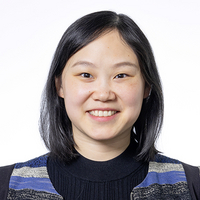Participating Groups
Roopesh Anand Petra Beli René Ketting Anton Khmelinskii Nard Kubben Katja Luck Christof Niehrs Jan Padeken Stamatis Papathanasiou Katharina Papsdorf Sandra Schick Helle Ulrich Siyao Wang Sina WittmannTransgenerational Consequences of DNA Damage

DNA damage is a major threat to genome stability, chromosomal integrity and cellular function. Defects in transcription-coupled nucleotide excision repair (TC-NER) slow growth and cause mental retardation, photosensitivity and premature ageing in patients with Cockayne syndrome (CS). To ensure successful DNA repair, chromatin serves as a platform and is dynamically modified during the DNA damage response (DDR), as described by the Access-Repair-Restore model. As a critical part of chromatin, histones are post-translationally modified via methylation, ubiquitination and acetylation to regulate DDR-related chromatin functions. Importantly, in contrast to the transient process of DNA repair, many histone modifications can leave a long-term epigenetic memory in cells and be passed on to subsequent generations. My previous work has shown that one histone modification, H3K4me2, is involved in the regulation of lifespan in C. elegans following transcription-blocking DNA damage. In addition, DNA damage in germ cells can have a transgenerational detrimental effect on their offspring.
My lab is interested in investigating whether DNA damage can remodel the epigenome during ageing and transmit a transgenerational effect to the offspring, influencing their longevity.
Positions held
- Since 2023: Group Leader, Institute of Molecular Biology (IMB), Mainz, Germany
- Since 2022: Group Leader, Institute for Genome Stability in Ageing and Disease (IGSAD), University Hospital of Cologne, Germany
- 2015 - 2022: Postdoctoral Researcher, CECAD, University Hospital of Cologne, Cologne, Germany
Education
- 2015: PhD in Molecular Cancer, The University of Manchester, UK
- 2010: BMed in Preclinical Medicine, Southern Medical University, Guangzhou, China
Selected publications by Siyao Wang
Wang S, Meyer DH and Schumacher B (2023) Inheritance of paternal DNA damage by histone-mediated repair restriction. Nature, 613:365–374 Link
Soltanmohammadi N*, Wang S* and Schumacher B (2021) Somatic PMK-1/p38 signaling links environmental stress to germ cell apoptosis and heritable euploidy. Nat Commun, 13:701 (*indicates joint contribution) Link
Wang S, Meyer DH and Schumacher B (2020) H3K4me2 regulates the recovery of protein biosynthesis and homeostasis following DNA damage. Nat Struct Mol Biol, 27:1165–1177 Link
Fisher K, Gee F, Wang S, Xue F, Knapp S, Philpott M, Wells C, Rodriguez M, Snoek LB, Kammenga J and Poulin GB (2013) Maintenance of muscle myosin levels in adult C. elegans requires both the double bromodomain protein BET-1 and sumoylation. Biol Open, 2:1354–1363 Link
Wang S, Fisher K and Poulin GB (2011) Lineage specific trimethylation of H3 on lysine 4 during C. elegans early embryogenesis. Dev Biol, 355:227–238 Link